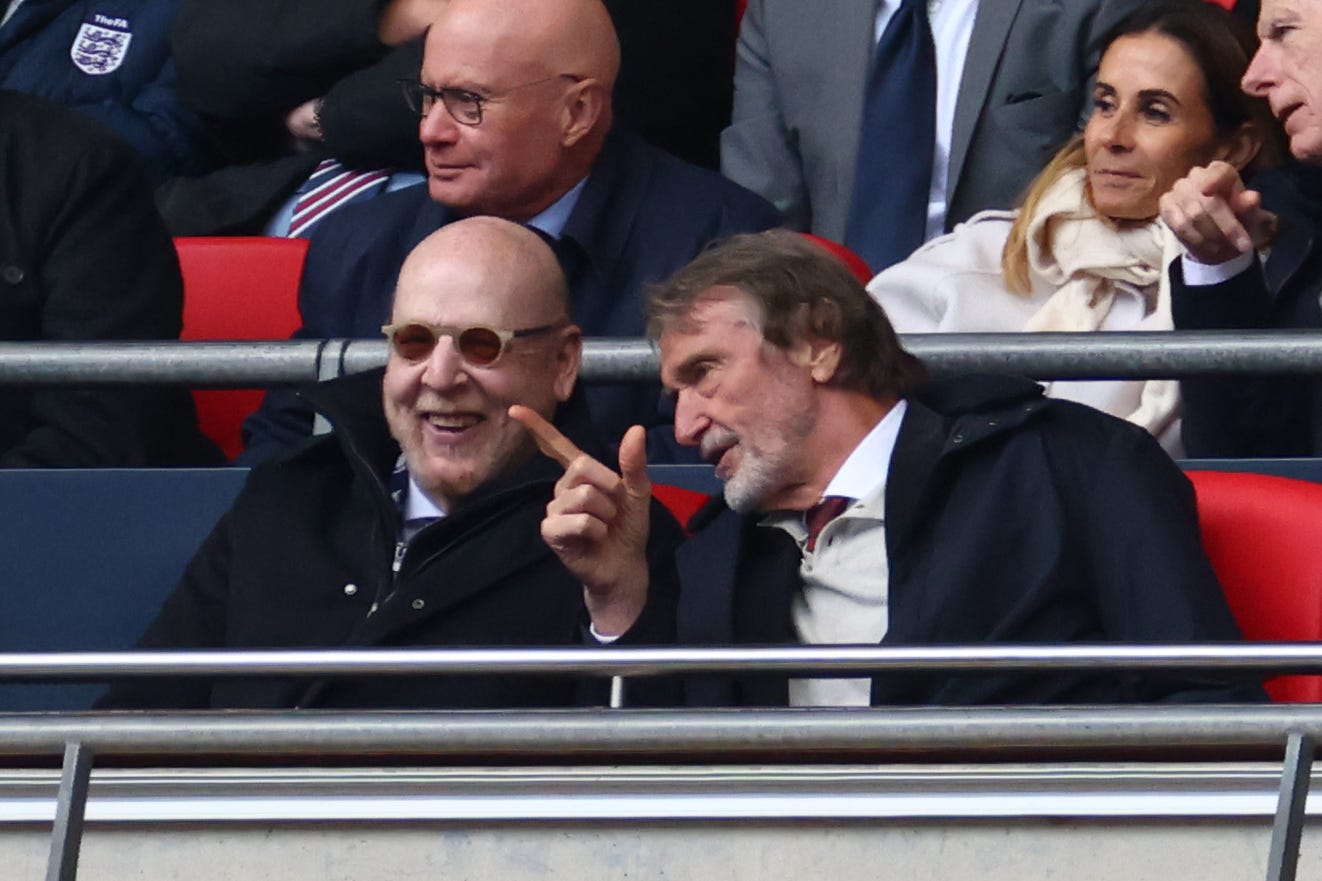Ratcliffe, the Glazers, debt and decay
Sir Jim Ratcliffe is a ruthless businessman making unpopular decisions, many of them heartless towards loyal Manchester United staff. Penny-pinching is no way to improve morale – or productivity. Culling 250 jobs saves a reported £35m – or how much United overpaid on Antony. It’s a PR disaster, a reminder that Ratcliffe does not appreciate the difference between an emotion-filled football club and an oil refinery, between supporters and customers, and he’s being vilified but the main problem remains the Glazers.
Following alarming financial figures released this week, the Manchester United Supporters’ Trust highlighted with barely-concealed outrage that it lifted “the total interest costs since the Glazers’ leveraged buyout to more than £1bn”. Throw in more than £100m paid out in dividends to the Glazers, and the cost of their ownership model becomes even clearer.
The FA was hoodwinked when Malcolm Glazer went for tea and a cosy, introductory chat with them after buying this great club institution in 2005. He said his family would be good custodians of England’s biggest club. Malcolm Glazer passed away in 2014, and some of the United fans’ chants about him were reprehensible. But so has been his family’s attitude to the club. It’s just been about profit, and what’s in it or them. They’ve already sold a quarter of their stake to Ratcliffe for £1bn. When they finally sell the rest, netting two or three times more, the Glazers’ involvement with United will be talked about as a masterclass in business schools – and as a disaster by fans.
The Glazers enjoyed eight successful years, including three Champions League finals (winning in 2008), primarily down to the driven genius of Sir Alex Ferguson, shrewd recruitment and a productive academy. They certainly backed managers in the transfer market, but their distance from operations and disinterest in the football, led to mismanagement and a mess that Ratcliffe now addresses.
He has made mistakes, not least the expensive dithering over Erik ten Hag. Whoever was driving the support for the Dutchman, the direction of travel was very clear, towards the exit, and the journey should have been accelerated more quickly and cheaply. United’s staffing levels was probably bloated but the manner in which Ratcliffe and his execs have gone about the redundancies lacks any shred of empathy. The manner in which they have cut costs on things that always matter to staff, a Christmas party or extra tickets for the women’s team for their Cup final, alienates people further.


